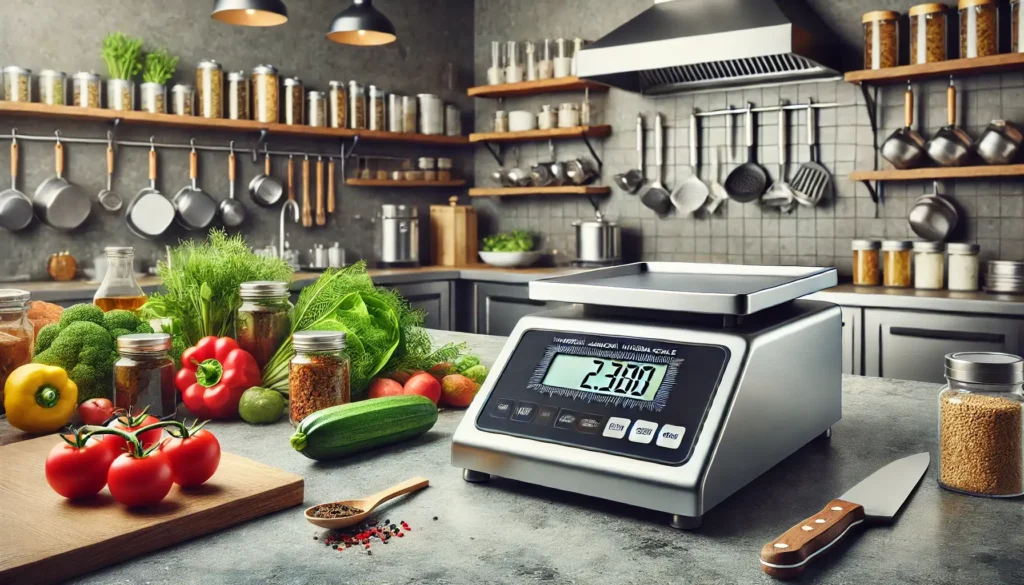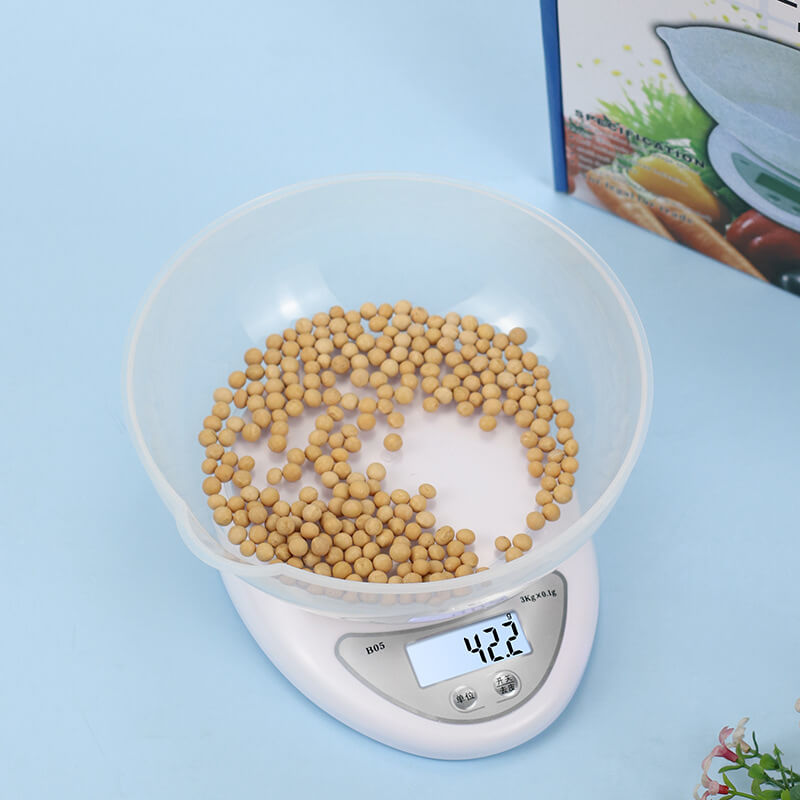Commercial Kitchen Scale Help You Measure with Precision: 5 Key Questions to Ask Before Buying
Precision is paramount in commercial kitchens. A high-quality commercial kitchen scale is essential for ensuring accuracy, consistency, and cost-effectiveness. But with so many options available, how do you choose the right one?
Table of Contents
Toggle1. What Is the Most Accurate Commercial Kitchen Scale for High-Volume Cooking?
Consider factors like precision, durability, and ease of use. The best commercial kitchen scales for high-volume cooking offer precise measurements down to the gram or ounce, depending on your requirements.
- Digital Scales: These tend to be the most accurate. With their ability to measure small increments, they are perfect for recipes that require precision. Look for scales that offer a tare function, which allows you to reset the scale to zero even after placing a container on it.
- Mechanical Scales: Though not as precise as digital models, mechanical scales can still be useful for weighing larger quantities where minor differences won’t significantly affect the outcome. They are more durable and reliable in harsh kitchen environments.
For the most accuracy in high-volume cooking, a digital commercial kitchen scale is your best option. Ensure that the model you choose has a high-resolution display for easy reading and can toggle between units of measurement.
2. How Much Weight Can a Commercial Kitchen Scale Handle, and Is It Suitable for Bulk Ingredients?
When choosing a commercial kitchen scale, it’s important to consider its maximum weight capacity, especially if you’re dealing with bulk ingredients. Some scales are designed for light, precise measurements, while others can handle larger, heavier items.
- Low-Capacity Scales (Up to 10 lbs): These are ideal for small-scale tasks, like measuring individual portions or ingredients for baking and cooking. They offer precise readings, but their capacity might be too limited for heavy-duty tasks.
- High-Capacity Scales (Up to 100 lbs or more): If you need to weigh large quantities of meat, dough, or other bulk ingredients, a high-capacity scale is essential. These scales are built to handle heavier loads, making them suitable for restaurants, bakeries, or any kitchen where large volumes of ingredients are common.
For a versatile kitchen, consider having both a low-capacity and high-capacity scale to cover a broad range of tasks.
3. What Features Should I Look for in a Durable and Reliable Commercial Kitchen Scale?
When investing in a commercial kitchen scale, durability and reliability are key factors. Your kitchen environment is fast-paced and potentially harsh, so your scale must withstand regular use, spills, and varying temperatures.
- Material: Look for scales made of stainless steel or high-quality plastic, which are resistant to rust, corrosion, and impact damage. Stainless steel is preferred for its durability and ease of cleaning, but high-grade plastic can also perform well under certain conditions.
- Waterproofing: In commercial kitchens, spills are inevitable. Choosing a waterproof or water-resistant scale will ensure that it survives accidental liquid exposure. Some models are even submersible, making them easier to clean thoroughly.
- Overload Protection: This feature prevents the scale from becoming damaged if too much weight is placed on it. A scale with overload protection will alert you when the load exceeds its capacity, helping you avoid costly repairs.
- Rubber Feet for Stability: Look for models with non-slip rubber feet to ensure the scale stays in place during use, reducing the risk of inaccurate measurements.
Invest in a durable commercial kitchen scale that will hold up in your kitchen environment and offer consistent performance.
4.Choosing the Right Scale for Your Needs
When selecting a commercial kitchen scale, it’s important to consider your specific needs and priorities. Both digital and mechanical scales have their advantages and disadvantages, and the best choice for you will depend on factors such as:
- Precision: Digital scales offer more precise measurements, making them ideal for weighing small ingredients or individual portions. Mechanical scales are less precise but can still be useful for weighing larger quantities.
- Durability: Mechanical scales are generally more robust and can withstand harsher conditions, while digital scales may be more susceptible to damage.
- Cost: Mechanical scales are often less expensive than digital scales, especially in the long run, as they don’t require batteries or other maintenance.
- Features: Digital scales often come with additional features like tare functions, automatic shut-off, and unit conversion, which can be helpful in commercial settings.
Digital Kitchen Scales:
- Ideal for precision measurements
- Suitable for weighing small ingredients or individual portions
- Offer additional features like tare functions, automatic shut-off, and unit conversion
- May be more susceptible to damage
Mechanical Kitchen Scales:
- More robust and durable
- Less precise than digital scales
- Generally less expensive
- Don’t require batteries or other maintenance
Ultimately, the best scale for your commercial setting will depend on your specific needs and budget. Consider your typical tasks, the level of precision required, and the durability and maintenance requirements of each type of scale.
5. How Easy Is It to Clean and Maintain a Commercial Kitchen Scale for Long-Term Use?
Hygiene is a critical factor in any commercial kitchen, and ensuring that your commercial kitchen scale is easy to clean and maintain will help keep your kitchen sanitary and extend the lifespan of your scale.
- Removable Platforms: Scales with removable platforms are easier to clean since you can detach the platform and wash it separately. Look for models with stainless steel platforms, which are easy to wipe down and sanitize.
- Sealed Buttons and Displays: To prevent food and liquids from getting into the scale’s mechanisms, opt for models with sealed displays and buttons. This feature helps keep the internal components safe from water damage and grime buildup.
- Low Maintenance Needs: Mechanical scales generally require less maintenance since they don’t rely on electrical components. On the other hand, digital scales might need more care, especially in terms of protecting the display and ensuring the battery stays charged.
- Battery Life: If you opt for a digital scale, choose one with long-lasting battery life or the ability to recharge. This will minimize downtime and ensure the scale is ready for use whenever needed.
Cleaning and Maintenance Tips
Proper cleaning and maintenance are essential for ensuring the accuracy and longevity of your commercial kitchen scale. Here are some tips to keep your scale in top condition:
- Daily Cleaning:
- Wipe down the scale’s surface and platform with a damp cloth after each use.
- Remove any food debris or spills promptly.
- Avoid using harsh chemicals or abrasive cleaners that could damage the scale’s finish.
- Regular Cleaning:
- Deep clean the scale more thoroughly at least once a week.
- Remove the scale’s platform and wash it with warm soapy water.
- Clean the scale’s base and display with a damp cloth.
- Pay attention to areas where food particles or liquids may accumulate.
- Maintenance:
- If your scale has a removable battery, replace it regularly according to the manufacturer’s instructions.
- Check the scale’s calibration periodically to ensure accurate measurements.
- If you notice any signs of damage or malfunction, contact the manufacturer for repair or replacement.
Additional Tips:
- Protect from Spills: Use a spill mat or tray to minimize liquid exposure to the scale.
- Avoid Extreme Temperatures: Keep the scale away from heat sources or cold drafts.
- Store Properly: When not in use, store the scale in a clean, dry location.
Regular cleaning and proper maintenance will ensure that your scale continues to perform accurately and efficiently for years to come.
Conclusion
Selecting the right commercial kitchen scale is an important decision that can greatly impact the efficiency and accuracy of your kitchen operations. By considering factors like accuracy, weight capacity, durability, and ease of use, you can find a scale that meets the needs of your kitchen while ensuring long-term reliability.
Whether you prefer the precision of a digital scale or the ruggedness of a mechanical one, investing in a high-quality commercial kitchen scale will enhance your kitchen’s productivity and help maintain consistency in your dishes. Make sure to keep your scale clean and well-maintained, and it will serve your business for years to come.
Looking for the perfect commercial kitchen scale? Use the tips in this guide to make an informed decision, and you’ll be well on your way to mastering accurate and efficient measurements in your kitchen!
Ike
With five years of work experience under my belt, I’m always eager to learn and grow. I have a huge passion for travel—it’s not just about seeing new places but discovering different cultures and ways of thinking. When I’m not exploring the world....

 Mini Sealer
Mini Sealer Mugs
Mugs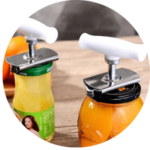 Opener
Opener Placemat
Placemat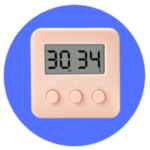 Timer
Timer Grinder & Spice Jar
Grinder & Spice Jar Juicer
Juicer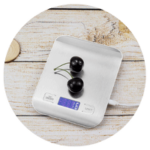 Scale
Scale Spray Oil Bottle
Spray Oil Bottle Coffee Tool
Coffee Tool Ice Tray
Ice Tray Accessories
Accessories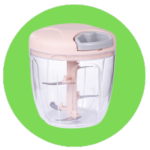 Veggie Cutter
Veggie Cutter Storage Box
Storage Box Cosmetic Brush
Cosmetic Brush Comb
Comb Fake Nails
Fake Nails